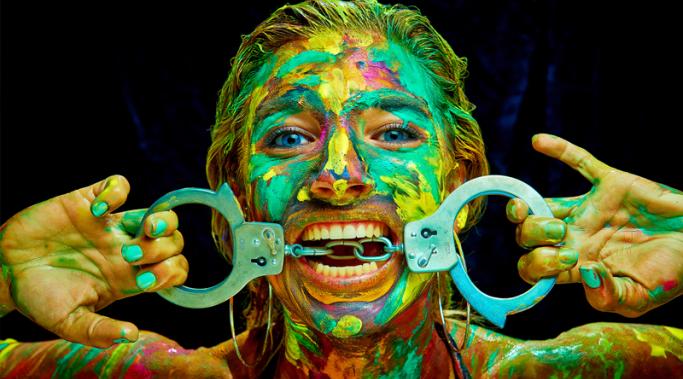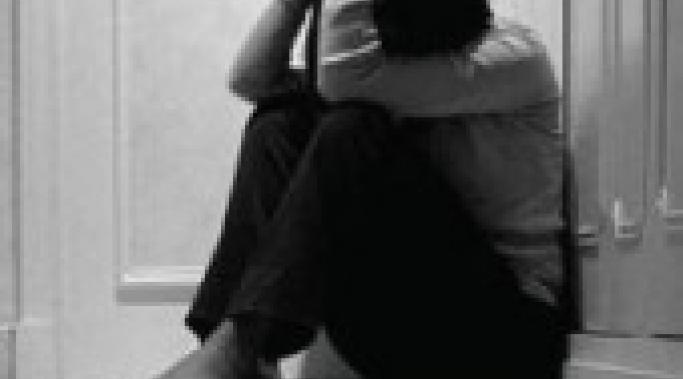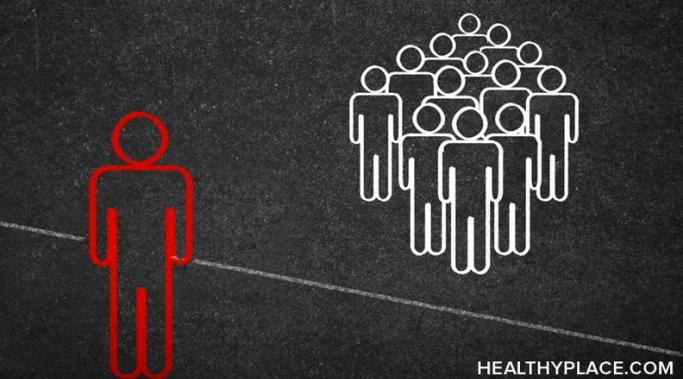I need people to stop using the borderline diagnosis as an insult. As someone who writes primarily about mental health, it’s easy for people to figure out that I’ve been diagnosed with borderline personality disorder (BPD) via a quick Google search. Part of me is relieved that it’s in the open – it frees me of the shame bestowed by secrecy and saves me from having to explain myself to people. But the other part of me worries that people who learn about my diagnosis will pigeonhole me based on their own misunderstandings of what BPD entails (Reclaiming Borderline to Reduce Stigma).
Stigma of BPD
When defining borderline personality disorder (BPD), most resources will present you with the Diagnostic and Statistical Manual (DSM) criteria, but I wish to reframe the borderline personality disorder diagnosis. Not only is the DSM flat-out wrong about certain aspects of BPD (such as its understanding of people with BPD as lacking empathy), but it reduces a complex experience of being human to a diagnosis packed with bias. Let's reframe borderline personality disorder and think about the diagnosis differently.
The new movie, Welcome to Me, definitely offers an offensive depiction of borderline. Borderline personality disorder (BPD) is a complex and challenging illness for those with expertise; so I wasn't entirely surprised that Welcome to Me failed miserably in representing BPD. If my sentiment wasn't already clear, I hated this film. The TV caricature with a borderline label contained traits uncharacteristic of BPD. The movie, Welcome to Me, is offensive and reckless; this movie transmits misinformation to the public, further stigmatizing borderline personality disorder.
Borderline personality disorder (BPD) is complex and challenging--for both patients and their doctors (among other clinicians). As patients suffering at BPD's mercy, however, sometimes we forget that doctors of borderline personality disorder are human and deserve sympathy, too.
I’m very open about my condition. I even write about it on Facebook and volunteer information in class. And I like calling myself “a borderline.” The peculiar self-reference is deliberate. For a while I subscribed to the idea that we are not our diseases—we are not borderline, we have borderline—and to be fair, I still do; however, I also think there’s power in language and have decided to reclaim "borderline" to reduce stigma.
While working on an article for a different web site, I stumbled across a study about mental illness among journalists. According to the study, the rate of posttraumatic stress disorder (PTSD) is higher among journalists than the general population. While journalists tend to have "positive personal attitudes" toward mental illness, they are often afraid to reveal their mental health struggles.
There was one fatal flaw in my plan to wake up screaming--I wasn't asleep.
This was not a nightmare, at least not in the literal sense. Although surreal, this was real—I was really pinned to my apartment floor, three people from Waco’s Antioch Community Church really were yelling at Satan and said people really were attempting to perform an exorcism without my consent. Later, I would take the incident up the church’s chain of command: the burden of proof never on me to prove it happened, but to prove that I was not “manifesting demons.”
This is an extreme example of the mental illness stigma often seen in the Church.
It's Halloween, and for mental health consumers, it can be an isolating time. The stigma of mental illness is reinforced with every "haunted asylum" attraction, "hanging man" decoration and "mental health patient" costume. More Than Borderline's Becky Oberg talks about how Halloween often reinforces negative stereotypes about mental health consumers, such as "they're violent," "they're deranged," and "they have no control over their actions."
Recently I sat on a panel of mental health consumers. Our goal was to educate people about mental health through drama and a question-and-answer session. When it came my turn to speak, I said that some mental illnesses were more stigmatized than others, fully knowing this would be controversial. Much to my surprise, I saw several heads nodding in agreement!
I was diagnosed with severe mental illness while I was a sophomore in college. I was suicidal, which prompted an emergency psychiatric evaluation. Unfortunately, it also prompted eviction from the dorm and suspension from school. I later got the director of the counseling center to admit--on the record--that the policy was more for the benefit of other students than the suicidal student. It was not the most compassionate of policies. So how can colleges and universities help students with mental illness?









